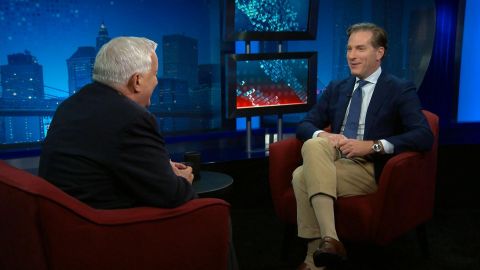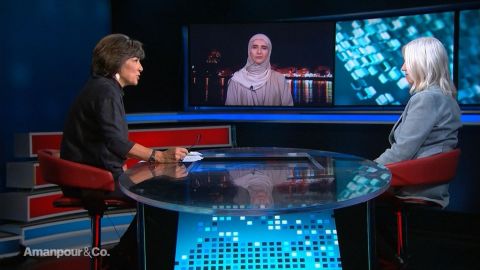Read Transcript EXPAND
CHRISTIANE AMANPOUR: You are the first Arab novelist to have written a book man to win the Man Booker International Prize. It’s the first time a book written in Arabic has won. Just what did that mean to you, not just as a novelist, but highlighting the place of your country and your society in this fashion?
JOKHA ALHARTHI, AUTHOR, CELESTIAL BODIES: It’s a great honor. The Arabic literature is almost 1,700 years old. Being from Oman, for me make it even better. Because you know for recent years, the center of culture in Arab world used to be cities like Cairo or Beirut. So Oman came as a surprise in this matter. I believe it’s a good surprise.
AMANPOUR: Well, my goodness, it certainly had rave reviews from the critics. So let me turn to Marilyn Booth who is your co-winner. You shared this prize. How challenging or otherwise was it to interpret a story from Oman? I know you’re obviously a very competent professional interpreter, but it’s not just about pure translation, is it?
MARILYN BOOTH, TRANSLATOR, CELESTIAL BODIES: It is certainly challenging, because there is a great deal of diversity across the Arab world in language, in usages, proverbs, understandings as well as the society itself. So, I was helped greatly by Jokha with expressions and so forth that I was not familiar with.
AMANPOUR: Because you’ve never been — you’ve traveled widely around the Arab world.
BOOTH: I’ve traveled widely and —
AMANPOUR: But not to Oman.
BOOTH: I’ve lived in Egypt and Lebanon, but not to Oman.
AMANPOUR: So, how does somebody like yourself familiarize herself, I guess, with the intimate parts that create this story? I mean, you hadn’t seen it, smelled it, lived it.
BOOTH: That makes me it harder and it made me nervous to be doing that. But I think with Jokha’s help and one thing that Jokha did when I would ask her a question would be not necessarily to describe something to me, but to send me a picture. And that was wonderful, and that helped a great deal. I also read a lot of Omani history and I read works of anthropology and I did quite a bit of research just to put myself in the frame of mind.
AMANPOUR: This is a book about a family in a village in Oman, and it’s really through the perspectives and the eyes mostly of women. And it’s mostly about three sisters and their experience with marriage and their inner lives as well. Why did you choose this topic, Jokha? What were you looking to say?
ALHARTHI: I think that I had very good chances, since I was little, to know different types of women who have different views on life.
About This Episode EXPAND
Anita Hill sits down with Christiane Amanpour to reflect on harassment, abuse and the politics of today. Noah Feldman weighs in on the impeachment inquiry and abuse of power with Walter Isaacson. Jokha Alharthi discusses her second novel, “Celestial Bodies,” with the book’s translator Marilyn Booth.
LEARN MORE


